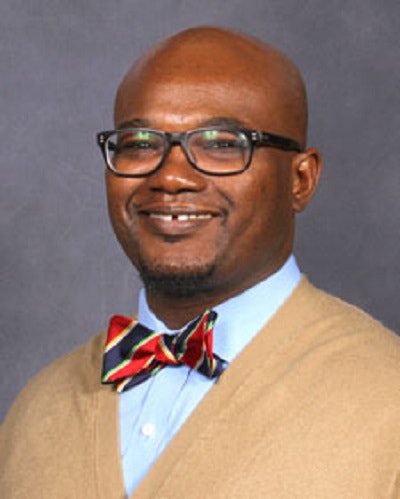After Black alumni strongly denounced his actions, Liberty University president Jerry Falwell Jr. apologized on Monday for a May 27 tweet — which he has now deleted — in which he posted a picture of a blackface mask. Several alumni and staff of the Virginia university called the tweet racist and at least three Black staff members, including a professor, have since resigned.
While Falwell Jr. apologized in his Monday tweets, he also said his earlier Blackface tweet used an image to make a political point, something he claimed that Black alumni “understood.”
 Jerry Falwell Jr.
Jerry Falwell Jr.Falwell Jr. is referring to the fact that in the tweet in question, he’d included a photograph of a person in blackface who he said — in another tweet he hasn’t deleted — is Virginia Gov. Ralph Northam. He said he was criticizing Northam’s “racist past.” However, his blackface tweet was mainly criticizing Northam’s order that face coverings are a requirement in Virginia starting May 29. He didn’t explain how or why a picture of a blackface mask was necessary to underscore his criticism of the governor’s COVID-19 restrictions.
“After listening to African American LU leaders and alumni over the past week and hearing their concerns, I understand that by tweeting an image to remind all of the governor’s racist past I actually refreshed the trauma that image had caused and offended some by using the image to make a political point. Based on our long relationships, they uniformly understood this was not my intent, but because it was the result,” he tweeted on Monday.
Some on Twitter were unhappy with this statement. One tweet called the apology “mealy mouthed,” another said it was a “semi-apology and in yet another, a person said they are leaving Liberty University because they “cannot support a College that supports racism.”
Earlier, several Black alumni said in a petition that they “have been disappointed and deeply grieved by your [Falwell Jr.’s] incendiary rhetoric over the past several years.” As of Tuesday afternoon, the petition has been signed by 37,000 people. The petition, signed by 36 alumni, said Falwell Jr.’s blackface tweet “made light of our nation’s painful history of slavery and racism” and represented “a microcosm of the past several years of divisive rhetoric.”
The alumni used strong words to describe his behavior: “While students, professors, and alumni have urged you to alter your rhetoric and repent, sadly nothing has changed. …We are writing to urge you to stop this infantile behavior and lead our alma mater with dignity.”
Those who resigned from the university — Christopher A. House, an online instructor; Keyvon Scott, an admissions counselor; and LeeQuan LaVone McLaurin, director of Diversity Retention — cited the tweet and what they said are the race-insensitive policies at the university as reasons for leaving the institution.
 Christopher A. House
Christopher A. HouseHouse said Falwell Jr’s tweet evoked “a deep history of racial terror of people of color in the U.S.” Scott said he could not “encourage people to attend a school with racially insensitive leadership and culture.” McLaurin said it is “morally unconscionable” to ask students of color to stay at a university that “perpetuates very real and damaging racial trauma against them.” He also said that the university has time and again failed to support its minority students.
Still, the university’s board is satisfied with Falwell Jr.’s statements explaining his blackface tweet.
In a statement issued by the university, Jerry Prevo, chairman of Liberty’s board of trustees, said members are satisfied with Falwell Jr.’s “explanation of his purpose and intentions,” that they understand why the image he posted hurt some and that he isn’t racist.
“We understand these images have been hurtful for a number of our friends to see,” Prevo said in the statement. “We also know him and know him not to be a racist. Nor do we believe that he has been running Liberty University in a way that discriminates against African Americans.”
The university remains committed to fostering diversity in its academic and professional community, the statement said.
House, the instructor who resigned, said on Facebook on Tuesday “it will be interesting to see where this apology leads.”
“What concrete action will we see to help the recruitment and retention and valuing of black faculty members?” said House to The Washington Post. “What development of courses or programs will aid in understanding the construction of race and these hurtful images?”















